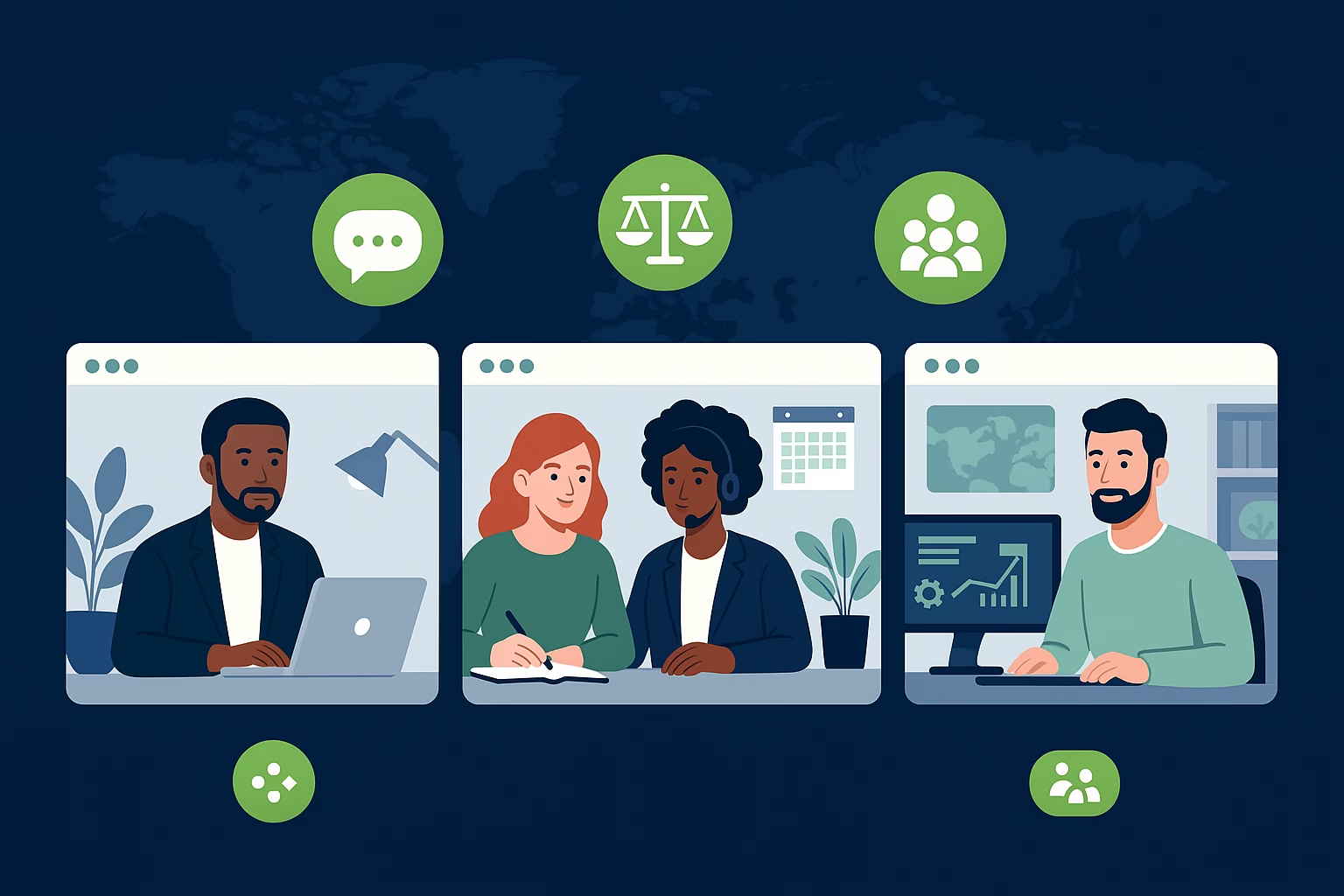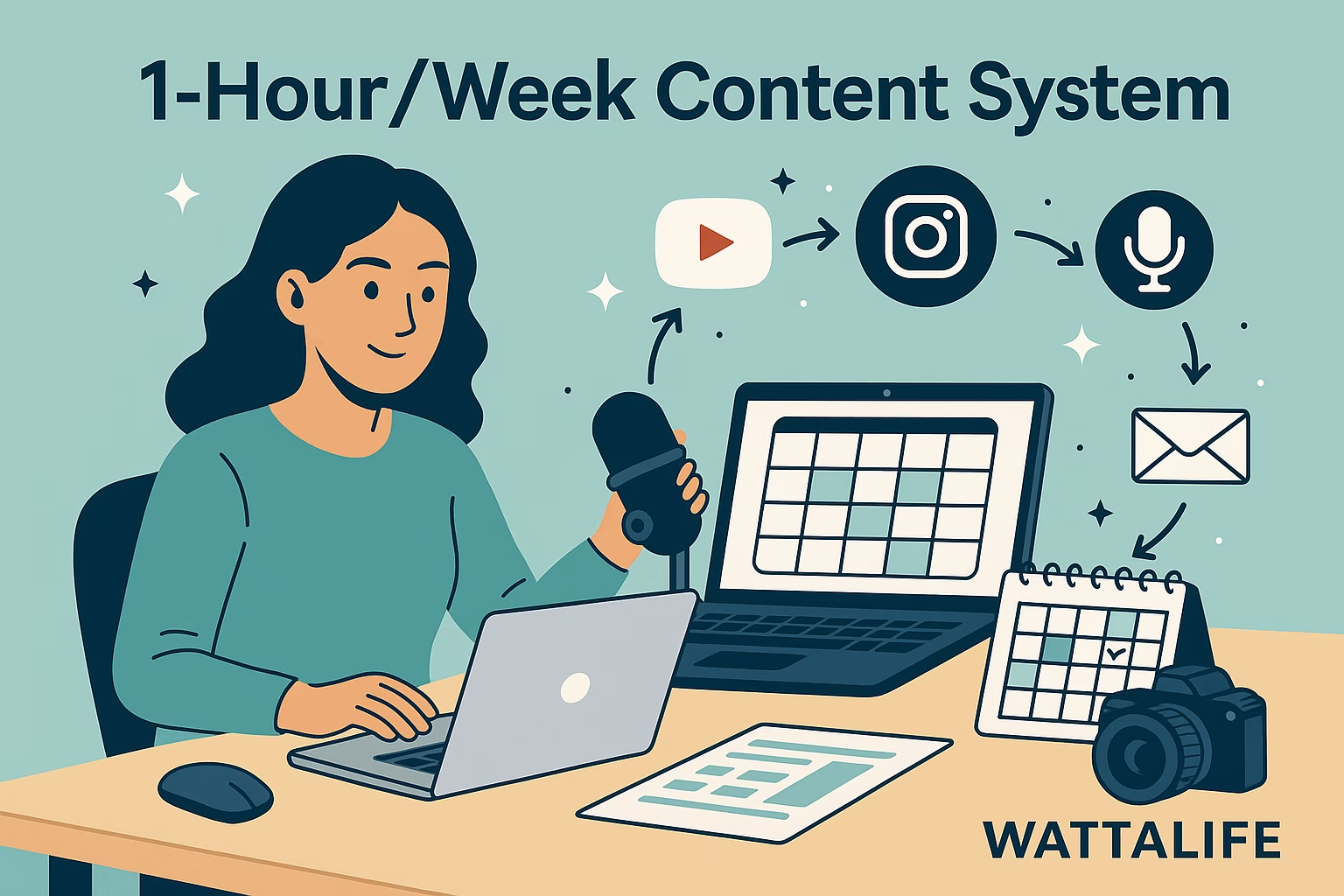Remote Careers That Last: Future-Proof Paths for Professionals

The best remote jobs of the AI era aren’t the easiest to automate—they’re the hardest. Here’s how to build a remote career that lasts, by focusing on the skills, roles, and projects that make you indispensable—now and in the future.
This guide is for remote professionals—knowledge workers, team leads, managers, facilitators, or anyone working from home or in hybrid teams. If you want a future-proof career that leverages your judgment, people skills, and cross-team coordination, this is for you.
Key Takeaways
- The safest remote careers require judgment, collaboration, and ethical decision-making.
- Governance, facilitation, and cross-team roles are hard for AI to replace.
- Certification, upskilling, and visibility in distributed teams help you stand out.
- AI is your co-pilot, not your competitor—learn to leverage, not fear it.
- Resilience and adaptability matter more than “hard skills” alone.
Problem: Most Remote Jobs Face Disruption—But Some Are Built to Last
In the last few years, remote work exploded—but many roles, especially repetitive or solo tasks, are already being automated by AI or offshored. The best-paid and most secure remote careers don’t just do the work—they coordinate, lead, or make nuanced decisions for the team, business, or customer. You need a path where your skills are future-proof.
Are you a facilitator, strategist, or bridge-builder? These are the remote jobs that last.
Promise: Move Into Remote Roles AI Can’t Fully Replace
This Wattalife guide gives you a step-by-step roadmap to pivot into future-proof remote roles—think governance, facilitation, and cross-functional collaboration. With live tool demos, modern upskilling strategies, and proven networking moves, you’ll become the kind of remote pro companies can’t live without.
You’ll see an example remote professional (let’s say: a project facilitator), but you can apply this system to your own path.
Step 1: Pick AI-Proof Remote Roles
-
Focus on roles that require human judgment and cross-team collaboration:
- Governance & Compliance: Policy advisor, AI governance, ethics, risk analyst
- Facilitation: Project facilitator, scrum master, change manager
- Research & Insights: Market research analyst, user researcher, customer insights lead
- Cross-Functional Project Lead: Brings together teams, makes judgment calls, manages priorities
- How-to: Use RemoteOK and WeWorkRemotely to search for these roles—filter for jobs with “governance,” “facilitation,” “research,” or “lead” in the title.
- Example: “Remote Project Facilitator for AI-driven SaaS company—coordinate launches across product, marketing, and customer support.”
Step 2: Build Core Skills for Longevity
-
Top future-proof skills:
- Facilitation & Communication: Lead meetings, mediate, run workshops, align teams
- Ethics & Judgment: Recognize bias, ensure compliance, make tough calls
- AI Tool Literacy: Use, prompt, and audit AI tools for your team
- Process & Systems Thinking: Optimize workflows, not just tasks
- How-to: Take a facilitation workshop (Coursera Facilitation Course), ethics certification (AI Ethics Udemy), or AI tools course (LinkedIn Learning: AI Tools).
Step 3: Get Certified & Signal Expertise
-
Certification and micro-credentials: Stand out in remote applicant pools.
- Certified ScrumMaster® (CSM): Scrum Alliance
- AI Governance or Ethics: AI Ethicist, LinkedIn Learning
- Remote Leadership: Remote Work Professional Certificate
- How-to: Choose one relevant certification—add it to your LinkedIn headline, CV, and email signature.
Step 4: Use the Right Tools—AI as a Co-Pilot
-
Adopt team and AI collaboration tools:
- Slack (asynchronous comms)
- Notion (knowledge base, project dashboards)
- Monday.com (project management)
- ChatGPT (drafting, brainstorming, automation)
- Loom (async video updates)
- How-to: Spend 15 minutes each week learning one new feature—watch a YouTube “how-to” for your main tool or AI assistant.
- Example: “Run a Notion dashboard for your team’s project status, then use ChatGPT to draft weekly updates.”
Step 5: Build Visibility & Value in Distributed Teams
- Don’t disappear! Share progress in public channels and team meetings.
- Offer to facilitate a meeting or project wrap-up—even if it’s not in your job description.
- How-to: Write a brief “Friday Wins” message on Slack, or present a monthly “What Worked/What Didn’t” Loom video.
- Mentor or support a junior teammate—become the “go-to” person.
Step 6: Create a Personal Growth Loop
- Set quarterly skill goals (facilitation, AI tools, or team building) and review progress monthly.
- How-to: Use a Notion board to track new skills, courses, and achievements.
- Share what you learn (internally or on LinkedIn)—this signals value and attracts new roles.
Avoid These Pitfalls
- Relying only on technical skills—judgment and cross-team skills are key.
- Hiding in DMs or private chats—visible value is what gets noticed and promoted.
- Skipping upskilling—AI and remote tools evolve fast; don’t fall behind.
- Assuming “remote” means “replaceable”—make yourself known, trusted, and indispensable.
Best Tools & Resources
- Remote job boards: RemoteOK, WeWorkRemotely, FlexJobs
- Facilitation & AI training: Coursera Facilitation, AI Ethics Udemy
- Productivity & collaboration: Notion, Slack, Loom
- Certifications: Scrum Alliance, AI Ethicist
Why This Works for Remote Professionals
Wattalife’s remote career system is built for the future—not just for remote work, but for work that lasts. By focusing on judgment, facilitation, and visibility, you become a value-driver (not a replaceable cog) in your company or client ecosystem. AI is your assistant—not your threat.
The best remote professionals never stop learning, sharing, and building bridges. You’ll be one of them.
Get More Future-Proof Remote Strategies
Subscribe to Wattalife Weekly—every Friday you’ll get remote work strategies, skills training, and tech tips to stay ahead of the curve. Join now and grab our “Remote Skills Starter Kit.”
No spam. Just remote work wisdom, straight to your inbox.





